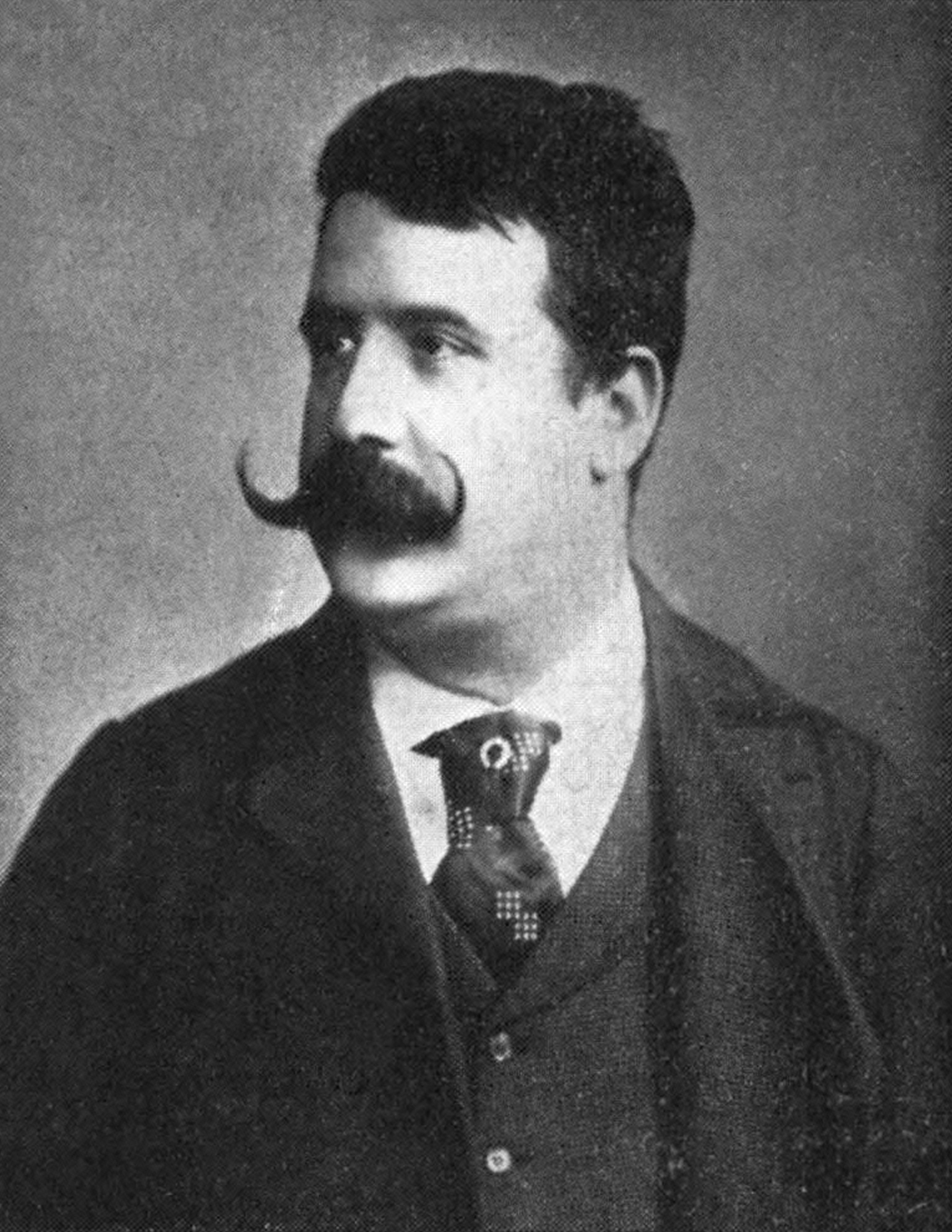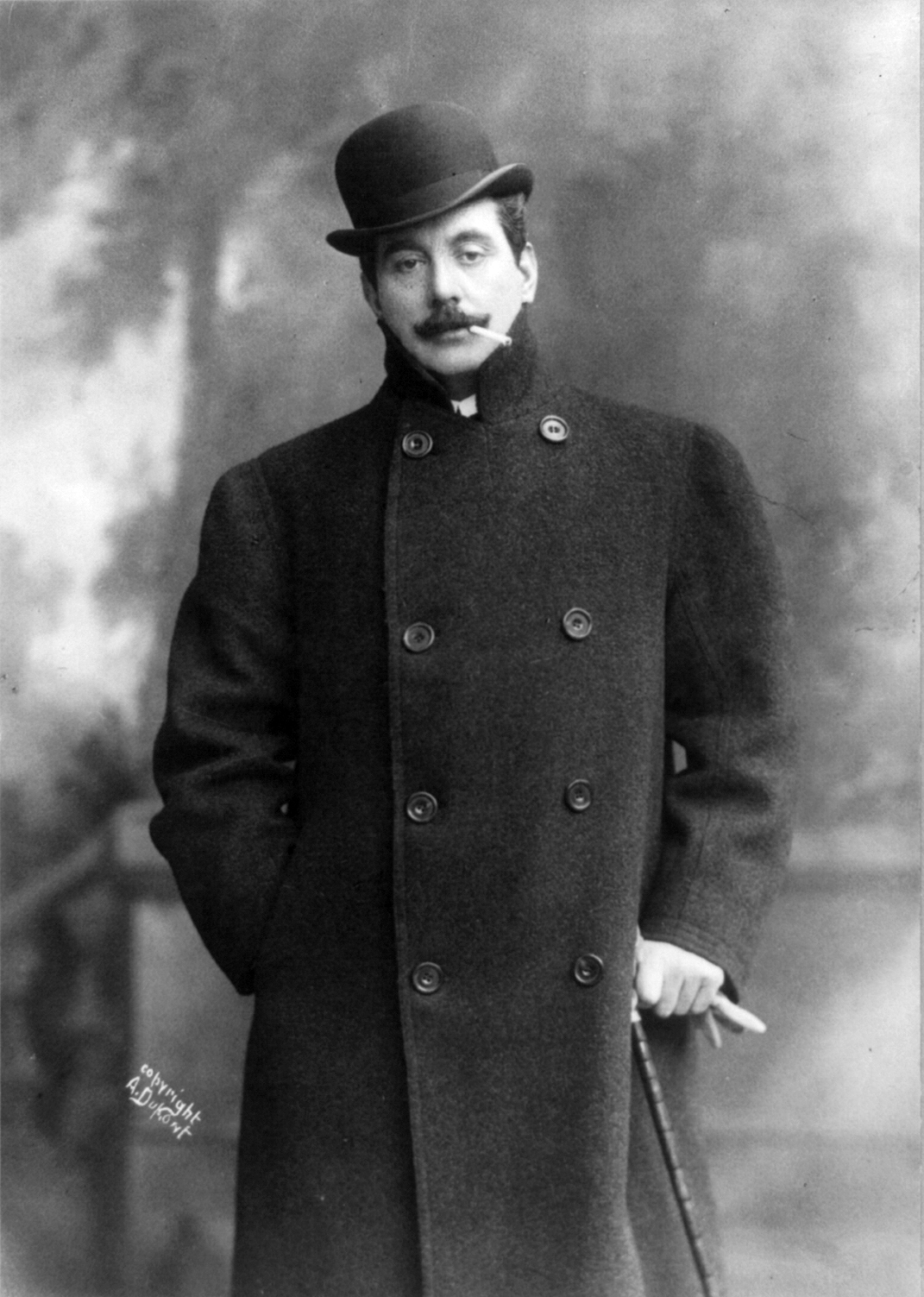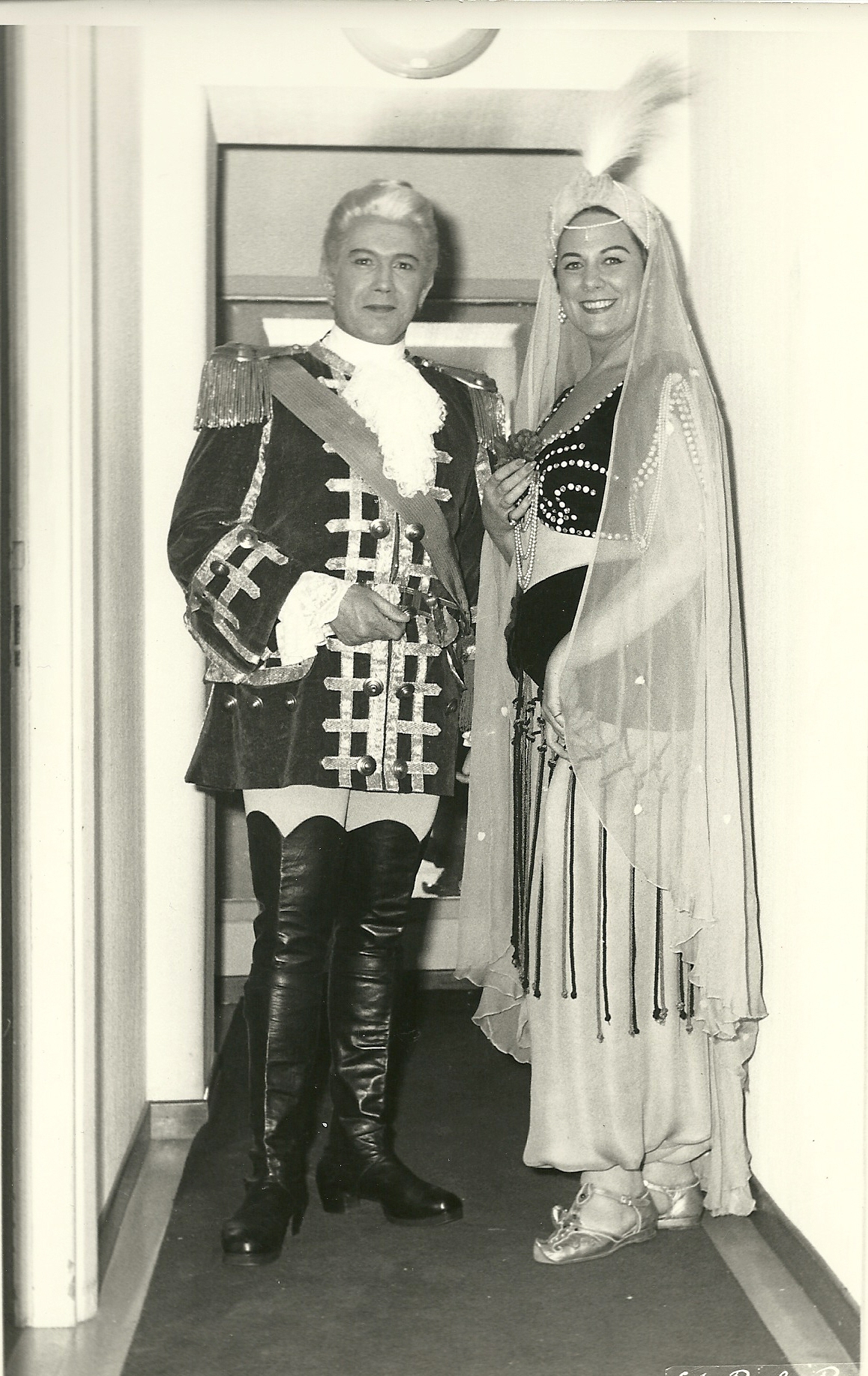|
Fausto Cleva
Fausto Cleva (May 17, 1902August 6, 1971) was an Austro-Hungarian-born American operatic conductor. Life and career Fausto Cleva was born in Trieste in 1902. After studies at the Conservatorio in his native city and Milan, Cleva made his debut conducting '' La traviata'' in Teatro Carcano, in Milan, before emigrating to the United States in 1920, becoming an American citizen in 1931. He joined the musical staff of the Metropolitan Opera later that year and for twenty years was an assistant conductor and later chorus-master and répétiteur before making his official conducting debut in February 1942. He later became closely involved with Cincinnati Summer Opera, of which he was musical director from 1934 until 1963. From 1944 to 1946 he was music director of the ill-fated Chicago Opera Company. In 1947 he conducted a performance of ''La bohème'' in Havana, with Hjördis Schymberg as Mimi. Following his return to the Metropolitan Opera in 1950, he conducted over 700 performanc ... [...More Info...] [...Related Items...] OR: [Wikipedia] [Google] [Baidu] |
WikiProject Classical Music
A WikiProject, or Wikiproject, is an affinity group for contributors with shared goals within the Wikimedia movement. WikiProjects are prevalent within the largest wiki, Wikipedia, and exist to varying degrees within Wikimedia project, sibling projects such as Wiktionary, Wikiquote, Wikidata, and Wikisource. They also exist in different languages, and translation of articles is a form of their collaboration. During the COVID-19 pandemic, CBS News noted the role of Wikipedia's WikiProject Medicine in maintaining the accuracy of articles related to the disease. Another WikiProject that has drawn attention is WikiProject Women Scientists, which was profiled by ''Smithsonian Magazine, Smithsonian'' for its efforts to improve coverage of women scientists which the profile noted had "helped increase the number of female scientists on Wikipedia from around 1,600 to over 5,000". On Wikipedia Some Wikipedia WikiProjects are substantial enough to engage in cooperative activities with outsi ... [...More Info...] [...Related Items...] OR: [Wikipedia] [Google] [Baidu] |
Ruggero Leoncavallo
Ruggero (or Ruggiero) Leoncavallo (23 April 18579 August 1919) was an Italian opera composer and librettist. Throughout his career, Leoncavallo produced numerous operas and songs but it is his 1892 opera ''Pagliacci'' that remained his lasting contribution, despite attempts to escape the shadow of his greatest success. Today ''Pagliacci'' continues to be his most famous opera and one of the most popular and frequently performed works in the operatic repertory. His other notable compositions include the song " Mattinata", popularized by Enrico Caruso, and, to a lesser extent, his version of ''La bohème'' which, however, was overshadowed by Puccini's highly successful opera of the same name. Biography The son of Vincenzo Leoncavallo, a police magistrate and judge, Leoncavallo was born in Naples, Kingdom of the Two Sicilies, on 23 April 1857. As a child, Leoncavallo moved with his father to the town of Montalto Uffugo in Calabria, where he lived during his adolescence. In 1868 ... [...More Info...] [...Related Items...] OR: [Wikipedia] [Google] [Baidu] |
Giuseppe Verdi
Giuseppe Fortunino Francesco Verdi ( ; ; 9 or 10 October 1813 – 27 January 1901) was an Italian composer best known for List of compositions by Giuseppe Verdi, his operas. He was born near Busseto, a small town in the province of Parma, to a family of moderate means, receiving a musical education with the help of a local patron, Antonio Barezzi. Verdi came to dominate the Italian opera scene after the era of Gioachino Rossini, Vincenzo Bellini, and Gaetano Donizetti, whose works significantly influenced him. In his early operas, Verdi demonstrated sympathy with the Risorgimento movement which sought the unification of Italy. He also served briefly as an elected politician. The chorus "Va, pensiero" from his early opera ''Nabucco'' (1842), and similar choruses in later operas, were much in the spirit of the unification movement, and the composer himself became esteemed as a representative of these ideals. An intensely private person, Verdi did not seek to ingratiate hims ... [...More Info...] [...Related Items...] OR: [Wikipedia] [Google] [Baidu] |
Tito Gobbi
Tito Gobbi (24 October 19135 March 1984) was an Italian operatic baritone with an international reputation. He made his operatic debut in Gubbio in 1935 as Count Rodolfo in Bellini's '' La sonnambula'' and quickly appeared in Italy's major opera houses. By the time he retired in 1979 he had acquired a repertoire of almost 100 operatic roles. They ranged from Mozart's mid-range baritone roles through Rossini's Barber through Donizetti and the standard Verdi and Puccini baritone roles to Alban Berg's '' Wozzeck''. He had a worldwide career as operatic baritone, appearing in (or recording the singing role) for over 25 films and, from the mid-1960s onward, was the stage director for about ten different operas which were given close to 35 productions throughout Europe and North America, including a significant number in Chicago for the Lyric Opera of Chicago. Gobbi and his wife, Tilde De Rensis, had a daughter, Cecilia, who now runs the "Associazione Musicale Tito Gobbi", an organ ... [...More Info...] [...Related Items...] OR: [Wikipedia] [Google] [Baidu] |
Franco Corelli
Franco Corelli (8 April 1921 – 29 October 2003) was an Italian tenor who had a major international opera career between 1951 and 1976. Associated in particular with the spinto and dramatic tenor roles of the Italian repertory, he was celebrated universally for his powerhouse voice, electrifying top notes, clear timbre, passionate singing and remarkable performances. Dubbed the "prince of tenors", audiences were enchanted by his handsome features and charismatic stage presence. He had a long and fruitful partnership with the Metropolitan Opera in New York City between 1961 and 1975. He also appeared on the stages of most of the major opera houses in Europe and with opera companies throughout North America. Biography Early life and education: 1921–1950 Corelli was born Dario Franco Corelli in Ancona into a family some say had little or no musical background. While his parents were not particularly musical, his paternal grandfather Augusto had actually quit working at 35 ... [...More Info...] [...Related Items...] OR: [Wikipedia] [Google] [Baidu] |
Maria Callas
Maria Callas (born Maria Anna Cecilia Sophia Kalogeropoulos; December 2, 1923 – September 16, 1977) was an American-born Greek soprano and one of the most renowned and influential opera singers of the 20th century. Many critics praised her ''bel canto'' technique, wide-ranging voice and dramatic interpretations. Her repertoire ranged from classical ''opera seria'' to the ''bel canto'' operas of Donizetti, Bellini, and Rossini, and further to the works of Verdi and Puccini, and in her early career to the music dramas of Wagner. Her musical and dramatic talents led to her being hailed as ''La Divina'' ("The Divine One"). Born in Manhattan and raised in Astoria, Queens, New York City, to Greek immigrant parents, she was raised by an overbearing mother who had wanted a son. Maria received her musical education in Greece at age 13 and later established her career in Italy. Forced to deal with the exigencies of 1940s wartime poverty and with near-sightedness that left her ... [...More Info...] [...Related Items...] OR: [Wikipedia] [Google] [Baidu] |
Tosca
''Tosca'' is an opera in three acts by Giacomo Puccini to an Italian libretto by Luigi Illica and Giuseppe Giacosa. It premiered at the Teatro dell'Opera di Roma, Teatro Costanzi in Rome on 14 January 1900. The work, based on Victorien Sardou's 1887 French-language dramatic play, ''La Tosca'', is a melodramatic piece set in Rome in June 1800, with the Kingdom of Naples's control of Rome threatened by Napoleon's Campaigns of 1800 in the French Revolutionary Wars#Italy, invasion of Italy. It contains depictions of torture, murder, and suicide, as well as some of Puccini's best-known lyrical arias. Puccini saw Sardou's play when it was touring Italy in 1889 and, after some vacillation, obtained the rights to turn the work into an opera in 1895. Turning the wordy French play into a succinct Italian opera took four years, during which the composer repeatedly argued with his librettists and publisher. ''Tosca'' premiered at a time of unrest in Rome, and its first performance was delayed ... [...More Info...] [...Related Items...] OR: [Wikipedia] [Google] [Baidu] |
Giacomo Puccini
Giacomo Puccini (22 December 1858 29 November 1924) was an Italian composer known primarily for List of compositions by Giacomo Puccini#Operas, his operas. Regarded as the greatest and most successful proponent of Italian opera after Verdi, he was descended from a long line of composers, stemming from the late Baroque music, Baroque era. Though his early work was firmly rooted in traditional late-nineteenth-century Romantic Italian opera, it later developed in the realistic ''verismo'' style, of which he became one of the leading exponents. His most renowned works are ''La bohème'' (1896), ''Tosca'' (1900), ''Madama Butterfly'' (1904), and the unfinished ''Turandot'' (posthumously completed by Franco Alfano), all of which are among the most List of important operas, frequently performed and recorded in the entirety of the operatic repertoire. Family and education Born in Lucca in the Grand Duchy of Tuscany, in 1858; he was the sixth of nine children of Michele Puccini (1813� ... [...More Info...] [...Related Items...] OR: [Wikipedia] [Google] [Baidu] |
Renata Tebaldi
Renata Tebaldi ( , ; 1 February 1922 – 19 December 2004) was an Italian spinto soprano, lirico-spinto soprano popular in the post-World War II, war period, and especially prominent as one of the stars of La Scala, Teatro di San Carlo, San Carlo and, especially, the Metropolitan Opera. Often considered among the great opera singers of the 20th century, she focused primarily on the ''verismo'' roles of the lyric and dramatic repertoires. Italian conductor Arturo Toscanini called her voice "" ("the voice of an angel"), and La Scala music director Riccardo Muti called her "one of the greatest performers with one of the most extraordinary voices in the field of opera." Early years and education Born in Pesaro, Tebaldi was the daughter of cellist Teobaldo Tebaldi and Giuseppina Barbieri, a nurse. Her parents separated before her birth and Tebaldi grew up with her mother in her maternal grandparents' home in Langhirano. Stricken with polio at the age of three, Tebaldi became in ... [...More Info...] [...Related Items...] OR: [Wikipedia] [Google] [Baidu] |
La Wally
''La Wally'' is an opera in four acts by composer Alfredo Catalani, to a libretto by Luigi Illica, first performed at La Scala, Milan, on 20 January 1892. It was Catalani's last opera. The libretto is based on a hugely successful ' by Wilhelmine von Hillern (1836–1916), '' The Vulture Maiden'' (''Die Geier-Wally''). Wally, short for Walburga, is a girl with some heroic attributes. The story is based on an episode in the life of Tyrolean painter Anna Stainer-Knittel, whom von Hillern met. She got her epithet "Geier" (vulture, the local name for eagle) from having gutted a bearded vulture's nest going down a rope; this dangerous task, aimed at protecting the sheep in the Alpine village, was typically performed by a man. Hillern's piece was originally serialized in '' Deutsche Rundschau'' and was reproduced in English as "A German Peasant Romance" [...More Info...] [...Related Items...] OR: [Wikipedia] [Google] [Baidu] |
Alfredo Catalani
Alfredo Catalani (19 June 1854 – 7 August 1893) was an Italian operatic composer. He is best remembered for his operas '' Loreley'' (1890) and '' La Wally'' (1892). ''La Wally'' was composed to a libretto by Luigi Illica, and features Catalani's most famous aria "Ebben? Ne andrò lontana." This aria, sung by American soprano Wilhelmenia Fernandez, was at the heart of Jean-Jacques Beineix's 1981 film '' Diva''. Catalani's other operas were much less successful. Life and career Born in Lucca, Catalani came from a musical family. He was trained at the Milan Conservatory, where his teachers included Antonio Bazzini. Despite the growing influence of the '' verismo'' style of opera during the 1880s and early 1890s, Catalani chose to compose in a more traditional manner, which had traces of Wagner in it. As a result, his operas (''La Wally'' excepted) have largely lost their place in the modern repertoire, even compared to those of Massenet and Puccini, whose style his own peri ... [...More Info...] [...Related Items...] OR: [Wikipedia] [Google] [Baidu] |







